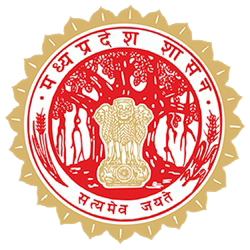INITIATIVES AND HISTORY
Initiatives in Past
The concept of village Defense Society involving people in Community policing was first introduced in 1956 in M.P. in the docity infested area with the express purpose of enlisting the corporation of the villages in the fight against the dreaded dacoits. At the out set such defense societies were first established in Gwalior, Bhind and Morena districts. Subsequently this was extended to Shivpuri, Datia, Guna, Rewa, and Sagar districts as well.
Madhya Pradesh Government, appointed one Chief Organizer, 17 Tehsil Organizer, along with supporting staff for the purpose. These societies creative work proved very useful to the Police Department over the year. In the 90s the government was again seized of the matter and as a result the “Madhya Pradesh Gram Tatha Nagar Raksha Samiti Vidheyak 1999” was enacted in the legislature. It sought to establish the village defense societies as well as the City defense societies in the establish the village defense societies as well as the City defense societies in the remaining parts of the State also.
Superintendent of Police of the districts are primarily responsible for the constitution and smooth functioning of these Gram Raksha and Nagar Raksha Samities.The task of constituting these societies got a major fill following the passage of the Bill. The number of such societies spread over the 41 districts of the State and the total number of members of society is as follows:
| S. No. | Society | No. of Societies | No. of Members |
|---|---|---|---|
| 1 | Village Defence Society | 33,804 | 3,17,140 |
| 2 | City Defence Society | 3, 896 | 46,014 |
| Total | 37,770 | 3,63,154 |
These societies have the primary responsibility in their respective villages of protection of people and their property as well as maintenance of peace and harmony. Since the villagers who become the members of the societies are ignorant of their duties as well as the methods they are supposed to employ in carrying out these duties, efforts are a foot to organize training camps for them. Proposals have been sent to the Government for allocation of funds to meet the requirement of such training camps. A six day training schedule is considered useful which will entail an expenditure of nearly of Rs. 30 crores. To begin with the Naxalite infested districts of Balaghat, Mandla and Dindori have been earmarked for such training at an estimated cost of Rs. 1.2 crores in the first phase.
The State Government is also considering a proposal to arm the members of the societies so as to enable the members to discharge their duties in a determined manner. The members would be entitled to use weapons as long as their membership lasts. In the meantime the district police authorities have been advised to help the eligible and willing members obtain valid arms licences.
Efforts are being made to form such Gram Raksha Samities in every village of the state and impart training to the members. Meetings at various level are also being organized to sensitize the members towards the role they are expected to play in maintenance of Law and Order in their respective juridiction.
For six days training camp the following statistics and expenses are proposed for members of the committee::
| S. No. | Training Days | Expenses per head per day | Total no. of members | Total Expenses |
|---|---|---|---|---|
| 1 | 1 | Rs. 150 /- | 3, 23, 145 | 4, 84, 71, 750.00 |
| 2 | 6 | Rs. 150 /- | 3, 23, 145 | 29, 08, 30, 500.00 |
In accordance of 6 days training, for a total of 10803 members in Balaghat, Mandla and Dindori District a training proposal is designed, which costs around 1, 01, 48, 600 /-, and is under consideration in Police Department.
To avail the weapons for the members of committee an amendment in the Vidheyak is required, although they can keep weapons with them during the period of their membership. Proposal is also made to purchase weapons by members, which are captured by police, if members have a arms act license.
Before passing of “Madhya Pradesh Village and City Community Policing Vidheyak 1999″, in 1956, the ranked officer, governing officers which are authenticated by Government in Gwalior, Chambal, Sagar and Rewa Districts are proposed to incorporate as a unit in Police Department.
On every police station level, attempts are made to cent-percent establish the Village Protection Committee. Efforts are also made to give a training on police station level to all members. Summits are also organized in districts for activation of the Mission. Expectations are there from the government to pay some money to members and providing them with weapons license and budget allocation for training and make appropriate changes in the Vidheyak for this purpose.
Advisory Committee at the District Level
- There will be an advisory committee to assist and advise the Superintendent of Police.
- All important sections of the Society may find representations in the committee.
- Women and deprived communities should have proportionate representation.
- Representation of the 3 tier panchayat and urban bodies in the district may also be included.
- Good voluntary agencies engaged in the areas of assertion of human rights, women development, SC and ST development may also be associated.
- The advisory committee should meet once in a month.
- It may suggest -:
- Steps for community involvement in police functions.
- Assist in implementing such suggested measures.
- Monitor implementations of these measures.
- Assist in redressal in people’s grievances.
- Review the law and order situation in the district.
- Review the progress in investigation, detection of crimes and the pace in the prosecution.
Community Policing Schems in M.P.
The initiative undertaken by the Police in Madhya Pradesh are as follows:
Parivar Paramarsh Kendra (Family Counseling Centers)
Launched on 10th October 1995
Aimed at alleviating the suffering of women in the family setup in our society. This effort has positively galvanized the functioning of the Police department hitherto not known to or associated with positive humanitarian endeavor. In Indore 9 centers are working to save the families from disintegrating. These centers are run by the active support and cooperation of volunteers from society, these include social workers, lawyers, medical professional’s etc. Out of the 2909 complains received at these centers 2364 have resulted in settlement after counseling, a success rate of 81.26%. In cases where legal aid was required female lawyers associated with this effort provide this aid free.
Nagar Suraksha Samiti (Town Defense Committee)
Launched in January 1996
Originally aimed at creating a group of right thinking citizens without any criminal record or known political affiliations, this effort has acquired dimensions, which were not originally thought of. Apart from assisting the police in doing its normal duties like managing major processions, generating awareness about police working, assisting in management of traffic. These centers have proceeded beyond the original charter and organized social work such as blood donation/grouping/HIV testing, tree plantations, cleanliness drive etc. This has helped in improving Police-Community relations and insured coordination. There is a great enthusiasm amongst the citizens to join the societies.
De-Addiction Camp
Launched in 1995
Although the State Govt. had formally set up a De-addiction Committee in the year 1989.This committee in its real sense started functioning effectively for the last four years, as a part of Police initiatives to organize De-addiction camps. For these camps services of three government doctors and one private practitioner were hired. Each camp was of 45 days duration. Initially Detoxification was done for the first two weeks and thereafter for one month duration the edicts of Brown Sugar were treated through psychological and psychiatrics therapy. Yoga was used as a mode to make these addicts more positive in their mind. The family members, after counseling were requested to behave normally with the patients. These services were rendered free of cost. N.S.S.(National Social Service) volunteers were engaged to follow up the cured addicts. An effort is also being made to provide training and loans where possible, to the cured persons for their rehabilitation. More than 150 persons in Six camps were treated and they are now leading normal life.
Gram Suraksha Samiti (Village Defense Committee)
28875 member are working in a total 3525 Village Defense Committees. Patrolling local law and order maintenance during festivals and various other works of village improvement are being carried out through these members. Apart from the above Police has also carried out work of adult education and literacy expansion through these Committees.
For example, Road construction / repair work in Shajapur District was done through voluntary labor contribution. 320 villages in 16 police stations areas connected with main roads. Work of road leveling, repair of drainage systems and reconstruction of damaged roads was carried out through voluntary labor contribution of Police and village defense committees.
Mobile Police Thana
Launched in October 1996
This is a novel initiative towards providing social justice to villagers. Under this initiative officers of police station camp at a fixed place, date and time. Officers of revenue and forest department are also requested to be present depending on the need. These meetings are held to dispose off the minor incidents or problems of the village. 353 villages have benefited by this scheme.
Bal Mitra Scheme
Launched in October 1997
Under this scheme, school students of different age group are brought to Police Stations to acquaint them with the working of the Police station and give them the opportunity to interact with Police Officers. This is done with the help of the school administration. Besides the opportunity to exchange views with Policemen, this effort helps allay the fear of about the Police from the minds of these children. Thus their negative views and fears about the Police change favorably.
Community Policing Centers
The first such center was started in the crime prone and sensitive areas of Indore called ‘Rustam Ka Baqicha’. Under this scheme police personnel’s make contacts with the local residents by door visit and successfully solved the problems of the people. This led to a considerable decrease in the crime about 25% especially on the front of Alcohol and women exploitation and other minor offense. This experiment is based on the famous ‘KOBAN” technique of Japan. At present there are 3 months community policing centers working successfully in Indore.
Medical Relief to injured persons
In coordination with the Trauma Management Center of the Health Department the Police started this effort to provide immediate relief to the injured in any accident within the Golden Hour 12 Nursing homes were voluntarily involved keeping in view the suitability of their location. Each nursing home dedicated one ambulance to this effort. Coordination was done through the Police Control Room. The ambulance was fully equipped and also had trained emergency medical technicians including Police on reviewing information about the injured/accident. The ambulance rushes to the spot of accidents, provide first aid to the injured and brings the injured to concerned nursing home.
After being declared out of danger an option is given to the patient to continue treatment at the same nursing home or to leave it and get treated in another hospital of his choice. Action is taken to reach him to the hospital concerned accordingly for further treatment. During this process, no cost for treatment is charged from the patient. But if the patient shows interest to continue his treatment in the same hospital, then the cost of treatment is charged. Over 180 cases have been handled by this effort.
Police help for the Visually impaired
Launched in January 1996
For the over-all developments of visually impaired students, the Police have made available to the school for visually impaired, “Audio Cassettes” which covers all – important topics of the syllabus. The visually impaired students have by and large appreciated this valuable gift from the police.
A “Writers Bank for visually impaired” also called the “Talking Book” was set up. This is the first bank of its type in India, which provides writers for the examinations to the visually impaired students as per regulations prescribed by the controlling body off school/college. 300 visually impaired students are being provided writers for their examinations. For the proper use of the calculator for the visually impaired called ABACUS, the first audiocassette of India is under preparation, which would make the use of ABACUS simpler and more effective.
www.Rubiks-Cu.be is a website dedicated to cube puzzle. Use the simulator, the online solver, learn the easiest solution method and measure your solution times.




